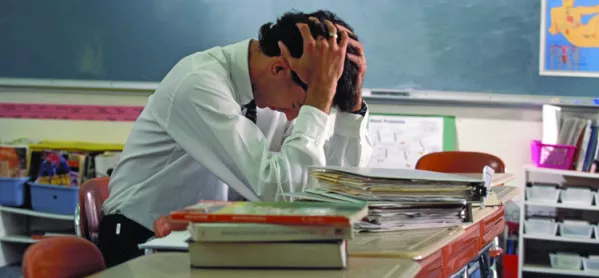Every pupil has at some point in their educational career suffered the embarrassment of calling the teacher either “Mum” or “Dad”. It is just as common for teachers to mistake their pupils for their offspring, but instead of making the teacher feel awkward, I think it is more likely to bring a sense of guilt. Such a mistake suggests they are focusing too much on the complications of their pupils, rather than of their own progeny.
As difficult as it is to separate your work life from your home life in a normal working environment, this becomes even more complex in teaching.
To teach effectively there has to be some emotional investment in your pupils, otherwise we might as well be replaced by robots. And as the education authorities dictate the increasing role of pastoral care in our teaching duties, the worry for teachers who are parents is that our empathy and concern is finite: what if we don’t have enough understanding left for our own children when we get home?
Guilt due to neglect
I taught a pupil whose problems were so complex, and ultimately irresolvable, that I found myself thinking about ways of solving his issues while I was on holiday with my family, where my children needed me to be connected. While my children’s issues are minor in comparison, they still need me and my wife to help sort them out.
There is also the emotionally wearing aspect of teaching. You have to be controlled in a working environment. However, there has to be a release mechanism to make the pressure bearable and, unfortunately, this can be discharged at home against your own children. Patience, like empathy, is finite.
And while it may be comparatively easy to be serene during the demands for attention, rudeness and neediness of other people’s children during the school day, unfortunately it is harder to remain professional when it is your own who are refusing to eat their dinner.
An internet search of “How to achieve the work life balance” brings up a plethora of quick fixes, but this conundrum is too complex to be solved by a listicle. The trick is to accept that we are only one element in the lives of our pupils, but the major one in our own kids’, and use that as the basis for doing your job well and being a good parent. But how many of us manage to do that?
Gordon Cairns is an English and forest school teacher in Glasgow
Want to keep up with the latest education news and opinion? Follow TES on Twitter and like TES on Facebook




